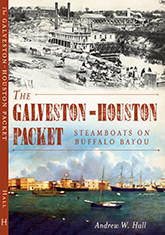Sanding Smooth the Rough Edges of History
Several folks have noted online that one of the Confederate reenactors at last Saturday’s Jeff Davis inaugural in Montgomery was an African American woman. Her name is Barbara Marthal, and she’s been active in Confederate heritage activities for years. She is a member of the Tennessee Order of the Black Rose, does public presentations on “black Confederates,” and last spring was married in a Confederacy-themed ceremony (PDF) hosted by the local SCV camp and ladies’ auxiliary. Her commitment to a particular, SCV-endorsed narrative about the war is unquestioned.
I mention Ms. Marthal because, in response to a story on the event at NPR, she posted a comment in which she cited the case of a Civil War relative of hers, Handy Davis Crudup, “who fought for and received a pension from the Confederacy. One hundred fifty years ago he would have cheered Mr. Davis.” The characterization of Mr. Crudup here is interesting, because Crudup’s Tennessee pension explicitly identifies him as a slave, accompanying Pvt. Richard T. Davis of the 7th Tennessee Infantry. This is a salient fact — indeed the most fundamental fact of his wartime experience — but rather than being clear about that, Ms. Marthal instead offers the somewhat ill-defined assertions that Crudup “fought for” the Confederacy, and “would have cheered Mr. Davis.” In place of specific fact, the reader is offered vague assertion and speculation. As with Jefferson Davis in 1861 and his doppelganger in 2011, the mention of slavery is avoided in preference to grander language. I really don’t know how she figures to know Crudup’s likely response to Davis” original speech.
It may seem unfair to examine too closely a comment posted to a news story, but in this case it’s not a quickly dashed-off response. They’re Ms. Marthal’s own words, unfiltered by a reporter or editor. Ms. Marthal’s comment is carefully-worded and clear. It is written in defense of the ceremony in Montgomery, addressed to other NPR readers whose own comments are clearly not sympathetic to her view. And it does as good a job of that as it can. But at the same time it badly misleads the casual reader about Mr. Crudup’s actual wartime status, leaving the clear impression that the man was recognized as a soldier. (Another news story gets closer, saying that Crudup “fought as a slave.”)
Ms. Marthal is clearly committed to her Southern heritage, as she views it. She seems conscientious and sincere, but it’s unfortunate that someone who commits so much time and effort to getting history right, falls into the trap of offering vague-but-grand-sounding language rather than clear and specific wording. We don’t do our ancestors honor by being vague or misleading about who they were. It’s hard enough to try to know them at all; it does no honor to their memory to avoid the unpleasant realities of their lives. They lived those hard, ugly realities; is it too much for us even to acknowledge them directly?






8 comments